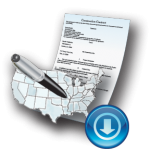Nearly all states require specific notices and disclosures in construction contracts. In some states and for some types of work, the list of required notices goes on and on. Worst case: California requires 35 separate notices in home improvement contracts. But anything your state requires is just the minimum. Your contracts also have to cover the price, the site, the plans, etc. But plenty more could be in your contracts.
Here’s my list of optional topics for construction contracts. Scan through this list. Think of recent jobs where an extra sentence or two in the contract could have avoided an argument or saved some money.
Site safety, protection and emergencies.
- Who is responsible for project safety?
- Who is responsible for fire safety?
- What response is required in an emergency?
- Who is responsible for protecting new and existing work?
- Who supplies fencing and toilets?
Hazardous materials.
- Any limits on use of asbestos, flammables or lead?
- Will explosives or welding equipment be allowed on the site?
- Who is responsible for hazardous materials discovered on site?
Survey and layout.
- Who will do the survey and job layout?
- Who is responsible if there are errors in the survey?
Permits, fees and taxes.
- Who applies for the permit and gets approvals?
- Who pays for permits and approvals?
Utilities, cleanup and job sign.
- Who provides temporary utilities?
- Who arranges for permanent utilities?
- Who cleans the job site?
- Is a job sign either allowed or required?
Role of the superintendent, architect or engineer.
- What is the authority of the owner’s representative?
Subcontracts and subcontractors.
- Can the owner reject subcontractors?
- What obligation does the owner have to subs?
Use of the site and adjacent property.
- Any restrictions on use of the jobsite by the contractor?
- Does the owner have free access to the site?
Responsibility for surprises in the job.
- Who is responsible for a mistake in the plans?
- Will the contractor get extra compensation for surprises?
Changes in the work.
- Can the owner insist on changes at a set price?
- Are written change orders required?
- Who pays for changes required by law or a plan defect?
- Is there a formula for pricing extra work?
- What changes are charged to the owner?
Warranties, defective work and callbacks.
- Can the owner reject work considered defective?
- What defects qualify for a callback and for how long?
- What warranty is included?
Handling claims and resolving disputes.
- How will disputes be settled?
- Is a written notice of claim required?
- Is arbitration required?
Liability for damage, indemnity and bonds.
- Who is liable for damage to the work?
- Will the contractor be liable for accidental losses?
- Will performance and payment bonds be required?
- What are the limits to liability?
Contract boilerplate.
- Can rights under this contract be assigned to others?
- Do waivers have to be in writing?
- Does the owner have the right to audit records?
- Are there any limits to contract claims?
Inspections and testing.
- Who schedules tests and inspections?
- Who pays for inspections and re-inspections?
- Is the contractor required to uncover work for inspection?
- What has to be in the written schedule?
- What types of delay by contractor will be excused?
- Will there be liquidated damages for non-excusable delay?
- Can the contractor collect for delay by the owner?
- How do we figure the cost of delay?
Suspension and termination of the job.
- Does the owner have the right to terminate the job?
- Does the contractor have the right to stop work for non-payment?
Completion.
- When is the job substantially complete?
- Will there be a punch list?
No contract has to cover all these topics. But at least consider these issues before submitting a contract for signature. The best way to be sure you touch all the bases: Construction Contract Writer. The trial version is free.

